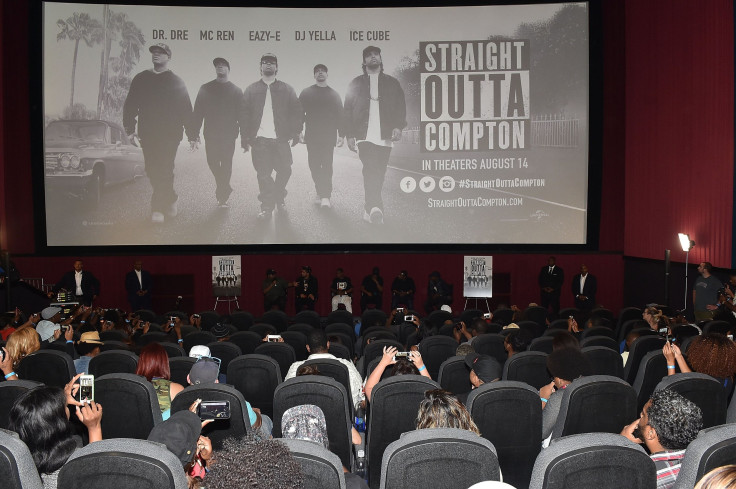Who Is Dee Barnes? ‘Straight Outta Compton’ Ignores Domestic Abuse Against Women, Survivor Writes

Dee Barnes is one of the thousands of people who saw the N.W.A biopic “Straight Outta Compton” -- but she’s much more too. She’s a survivor of domestic violence that she sustained at the hands of rapper Dr. Dre, the executive producer of the film. Barnes told her side of the story in an article for Gawker Tuesday after she realized she was a casualty of “revisionist history.”
Barnes, who used to be a host on a popular hip-hop show called “Pump It Up!”, said Dr. Dre beat her “mercilessly” at a nightclub in 1991. He was reportedly upset about a segment that aired on the Fox show in November 1990.
“That event isn’t depicted in Straight Outta Compton, but I don’t think it should have been, either,” she wrote. “The truth is too ugly for a general audience. I didn’t want to see a depiction of me getting beat up.”
After the assault, the rapper pleaded no contest and the civil suit Barnes had against him was settled outside of court. The act of violence was “no big thing,” Dr. Dre, whose real name is Andre Young, told Rolling Stone. While Barnes maintains that he kicked her, stepped on her fingers, smashed her head against the wall and tried to throw her down a flight of stairs, Dre told Rolling Stone he “just threw her through a door.”
We're All In The Same Gang @RapPagesTV https://t.co/e4dxRHdRue
— Dee Barnes (@sistadbarnes) August 14, 2015Barnes isn’t alone. Dre also allegedly beat his ex-girlfriend, Michel’le Toussaint, she said, during a radio interview in March 2015. Michel’le, who is known by her first name, accused Dre of giving her five black eyes. She described her relationship with Dre to Barnes in the following way: “I was just a quiet girlfriend who got beat on and told to sit down and shut up.”
Barnes said the film accurately acknowledged the harassment young black people have to endure at the hands of police officers, which is then continued when black men oppress black women. “It is a cycle of victimization and reenactment of violence that is rooted in racism and perpetuated by patriarchy,” she said.
To read Barnes’ article on Gawker in its entirety, click here.
At the time this was written, Dr. Dre had not issued a public response.
Follow me on Twitter @mariamzzarella
© Copyright IBTimes 2024. All rights reserved.












